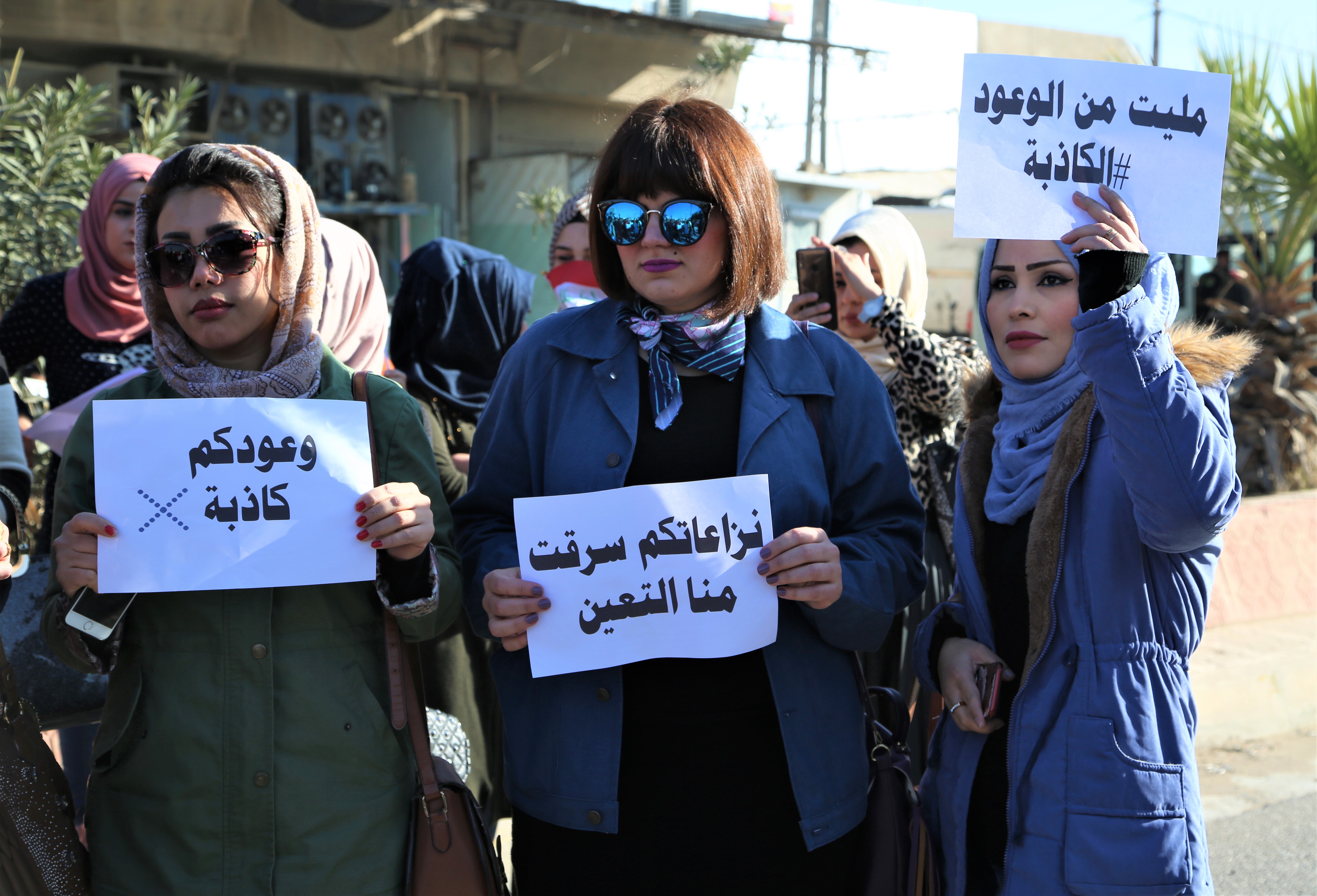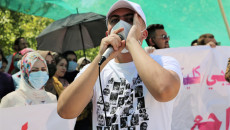The committee that is supposed to resolve the cases of 398 applicants for state employment in Kirkuk has not yet held any meeting, while their cases were scheduled to be resolved this week.
Last week, Kirkuk administration officials decided to resolve the cases of those applicants that were not employment on the grounds that they were not born in Kirkuk or their documents do not prove that they are from Kirkuk province.
Last August, the Iraqi Ministry of Health appointed 1,802 medical department graduates to the Kirkuk Health Department, but the governorate administration suspended the decision to appoint 398 of them who “are not born in Kirkuk, or that their documents do not prove that they are from Kirkuk,” which provoked protests by applicants and their families.
The instructions for appointments in Kirkuk state that the appointment includes only people who have a citizenship certificate, a residence card, and food ration card issued in Kirkuk relevant state departments and who have completed their education in Kirkuk.
Omar Mustafa, head of the citizens' affairs department of the Kirkuk provincial office, told KirkukNow the employment of the 398 applicants have been suspended because there is a decision in the city administration that dates back to the Kirkuk provincial council saying anyone who is employed must review his files and documents and be subjected to security audits, whether he is guilty or not, wanted or not, and prove that he is a native of Kirkuk.
"After pressure from members of parliament, parties and the governor, a committee has been formed to review the documents of the 398 people and I am one of the members of the committee," Mustafa said.
"The committee has not yet met and it is not clear when we will meet and resolve their cases," he added.
"A committee in the provincial office will review the citizenship, information cards and official transactions of the graduates and make a final decision within a week," Sabah Habib, a Kirkuk MP who investigated the problem, told Kirkuk Now last Thursday.
According to the instructions for appointments, the applicant for appointment is required to be a resident of Kirkuk, but it is not required to be born in that governorate.
The burden of state employees has pushed the Iraqi government to halt employment years ago, a step which piled hundreds of thousands of graduates and post graduates over the last few years.
Kirkuk and many provinces of Iraq regularly witnesses demonstrations and protests by postgraduates asking for state employment as the private sector is stagnated due to successive wars, instability and lack of state budget for investment in the public services.
The International Labor Organization ILO said last June unemployment rate in Iraq has jumped from 9% early 1990s into 14.2% in 2021.
Out of 40 million Iraqis, 9.2 million are employed while Iraq's state-dominated economy is led by the oil sector, which provides approximately 85% of state revenue. The government pays 400% more in salaries than it did 15 years ago. Around three quarters of the state’s expenditures in 2020 went to paying civil servants of the public sector.
Kirkuk, Iraq’s second largest oil reserves, located 238 kilometers north of Baghdad, is an ethnically mixed province for 1.7 million Arabs, Kurds and Turkmens. It has long been at the center of disputes between Baghdad and the Erbil.






